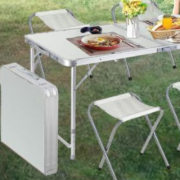As Summer arrives, it brings with itself a chance for kids to experience camps and get acquainted with like-minded children from around the city. For the parents allowing their kids to participate for the first time, questions like what the camp is supposed to be, will their kids make friends, what would they learn, are natural.
To put your minds at ease, we assure you that your kid is going to have a lot of fun and will learn new things while making friends. Here are ten summer camp tips for kids to help your kid get the best experience from this little adventure:
Talk and interact with campmates
Camps bring people from all across the city, and you never know who the next Bill Gates might turn out to be among those students. Make sure your kid is getting adequately acquainted with the campmates and discussing various ideas. Your kid will always be surrounded by students just like him from miles away, and it only makes sense to let him befriend his campmates and share his time with them, whether during the session or during break time. Encouraging your kids to make friends will not only help him get through the camp having fun, but it will also have an impact on his social abilities.
Know the instructors
When you are sending your kids to a camp that aims to teach a particular subject, the instructors there will be experts in those fields. Have your kids talk to the instructor and establish a sense of friendship with them.
With camps that deal with coding and programming, the instructors have an extensive technical background. Many of them could be undergraduate students in the related field, or they could be alumni or students from the university where the camp is held. This is why it is essential to teach your kids to get to know the instructors. It will help them open up to them more easily and ask questions without hesitation.
Ask questions
It is not only essential for students to ask questions to their instructors but also to themselves. The summer camp participants are not expected to be experts in programming and coding as soon as they join the camp. That is why camps offer courses for kids of all ages.
So, encourage your children to ask questions and try to get as close to the real answer as possible. While asking questions about their courses is vitals, make sure they are also trying to know the instructor’s journey and their career choices. Make them ask their campmates how they went about concluding a particular project or have them provide feedback.
Plan ahead
There are multiple options to choose to learn in the tech curriculum such as robotics classes, app development and online coding classes for kids. Students can select the topic that interests them the most and learns the subject in their own time.
Therefore, before enrolling your kids into a summer camp, make sure you have planned what course they are interested in and how they are going to go about learning it. For instance, while they might not have created mods for a game, they must have played the game itself as well as mods created by other people. If given a chance to create a mod, ask them what they would like to make.
Even if the kid is coming to the camp with no knowledge of programming, it is important to know their leniency and work on it from the get-go.
Participate
Every camp has aspects that the participants love and other elements that they don’t enjoy so much. While it is not recommended to love every aspect of the camp as soon as you begin, you should at least try participating in the activities.
Everything that takes place at a camp is aimed to make the students become better and learned versions of themselves. Therefore, all the students should be encouraged to take an active part in most, if not all, of the activities that take place during the camp.
Embrace the outdoors
Tech camps are filled with video games, computers, software, and other aspects that require students to stay indoors. However, since the camp is held at the college campus, you should encourage your kids to explore the college grounds and participate in some outdoor activities.
It will not only help them unclutter their minds but will also be beneficial for their physical growth. Moreover, taking in the outdoors can also help boost creativity and help the campers come up with brand new ideas.
Leave with a plan
Camps are temporary, and while you have fun during the camping session, sooner or later it will come to a point where it will be over, and you will be back to your usual life. Make sure your kids leave the camp with a plan in their heads regarding what to do next with the skills they have acquired.
The plan should include curiosity about learning new skills and enhancing the ones that have been acquired. The point of camp is not only to teach new skills to children but also to allow them to practice in the real world and work on getting better with time.
Share the camp experience
When your kids return from the camp, give them some time to revel in the experience they have had by allowing them to talk about it. If they are not that interested in talking to you, have them share their experience with siblings or friends. When kids learn something of value, they tend to talk about it and practice it in their daily lives. Therefore, kids need to talk about their summer camp experience.
Stay sharp after summer
For newbies, camps can be a starting point, while for kids who have some experience in their field, camps can be a much-needed platform to hone their skills. Whatever it is with your kid, make sure the experience of learning, trying new ideas, and experimenting does not end with the camp. If further education regarding a specific topic is required, arrange for it. Don’t let the camp become a distant memory where your kid picked up some skills, and that was it.
Give feedback and suggestion
Your feedback, as a parent, is critical to camp organizers, instructors, as well as the students. If you have issues with a particular aspect of the camp, bring it up to concerned authorities. Likewise, if you like some aspect of how things are done, let them know that as well. The more feedback you provide for the camp, the more the organizers will be able to work on it for the next summer camp.

















Comments